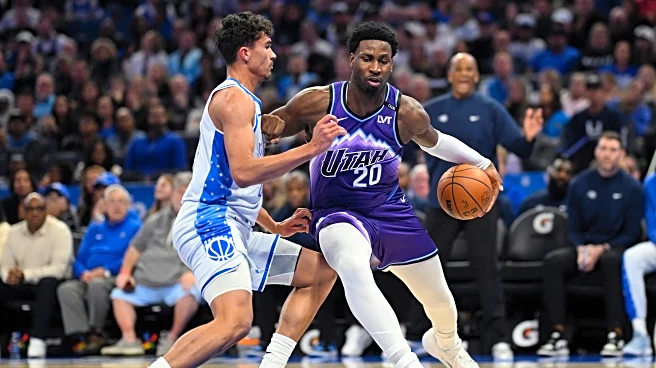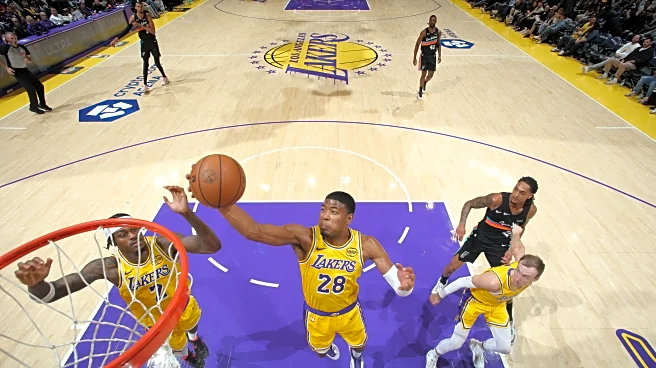What's Happening?
Baker Mayfield, known for his outspoken and confident demeanor, has become synonymous with trash-talking in the NFL, particularly as the quarterback for the Tampa Bay Buccaneers. Mayfield's career began with a polarizing reputation, but his resurgence
with the Buccaneers has earned him a cult-like following. Despite his early reputation for being cocky, Mayfield has maintained his trash-talking style, which he claims started as early as first grade due to his upbringing as an Oklahoma fan in Texas Longhorns territory. His confidence and trash-talking have been integral to his success, allowing him to thrive in high-pressure situations. Mayfield's approach has evolved from being perceived as immature to being seen as having moxie, as he continues to play with passion and energy.
Why It's Important?
Mayfield's trash-talking is significant as it highlights the changing perceptions of athletes in the NFL. His ability to use this style to enhance his performance demonstrates the psychological aspect of sports, where confidence and mental fortitude can impact gameplay. For the Buccaneers, Mayfield's approach has contributed to their competitive edge, as his leadership and fiery personality can inspire teammates and intimidate opponents. This development also reflects broader societal shifts in how assertiveness and confidence are perceived, particularly in sports, where such traits can be redefined over time based on performance and public perception.
What's Next?
As Mayfield continues to lead the Buccaneers, his trash-talking style may influence other players and teams, potentially leading to a more outspoken and confident culture within the NFL. Stakeholders such as coaches and team managers might consider how such psychological tactics can be harnessed to improve team dynamics and performance. Additionally, Mayfield's evolving reputation could impact his marketability and endorsement opportunities, as brands may seek to align with his confident persona.
Beyond the Headlines
Mayfield's story underscores the importance of authenticity in sports, where being true to oneself can lead to success despite initial criticism. His journey from a controversial figure to a respected leader highlights the potential for personal growth and redemption in professional sports. This narrative may inspire young athletes to embrace their unique styles and personalities, fostering a more diverse and inclusive environment within the sports industry.

















